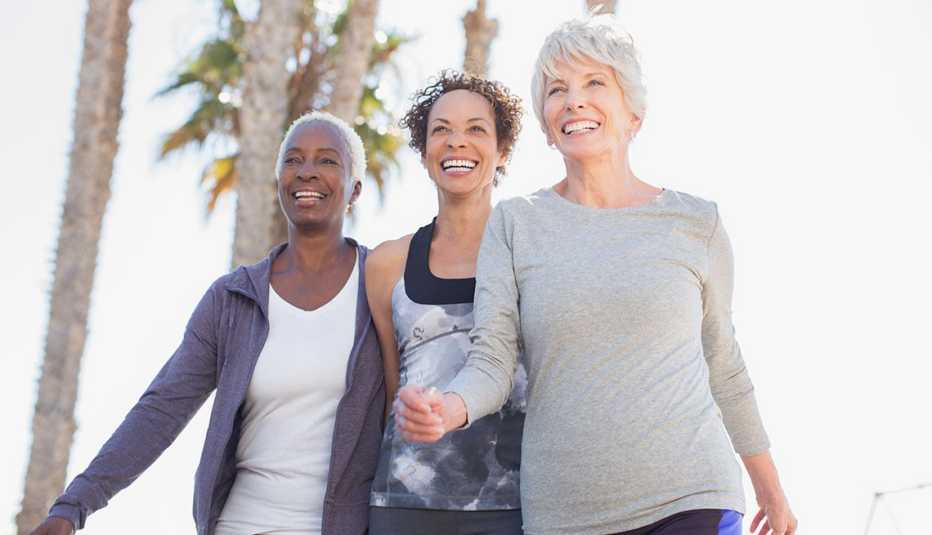AARP Hearing Center
Adapted from AARP’s Love Your Age, by Barbara Hannah Grufferman (National Geographic)
SEVERAL YEARS AGO, I stood on First Avenue in Manhattan with my two daughters and my husband, a few friends and neighbors, and lots of strangers. It was a glorious fall day, and we were watching packs of runners go by, caught up in the excitement of the New York City Marathon.
Yet despite the beauty of the day, all I could think about was how far I felt from the determined athletes passing just a few feet away. Facing 50 and not exactly loving this new age, I was feeling sluggish, low energy and anything but strong and ambitious. I didn’t like how my clothes fit or how my hair and skin looked. Having packed on a few new menopausal pounds didn’t help, though neither did the fact that I wasn’t doing anything about them.
On that day, I vowed to make some changes.
I couldn’t have imagined it at the time, but adopting the habit of running three times a week — rain or shine, all year long — became the foundation of a whole new life. My one new habit led to others.
As each small step built on the last, I realized that my former grumpy, frumpy, lumpy state of being wasn’t the inevitable result of getting older. It was the inevitable result of continuing to make the same unhealthy choices I’d been making for years.
These days, at age 61, I feel fantastic. I’m living proof that the little steps we take each day don’t stand alone: They all combine to determine how good we’ll feel today, tomorrow and in five years. While it’s never too early — or too late! — to let healthy habits into your life, you have to choose them over and over again every single day. That’s how the small steps add up.





































































